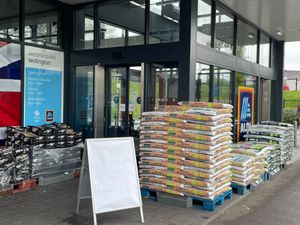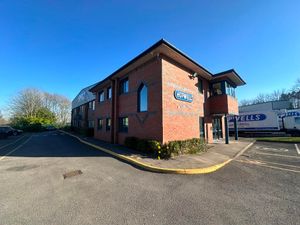The battle to bring giant car battery factory to site near M54
The Midlands has laid down a marker in the battle to host a major electric car battery site.
A site close to the M54 and near the Shropshire-Staffordshire border, has emerged as a contender in the battle to host a major electric car battery site.
Earlier this year it was revealed that the Government’s Department for International Trade was looking for sites to host ‘gigafactories’ – huge production plants making lithium-ion batteries for the new wave of electric cars.
Authorities across the country have put themselves forward as potential locations, with Coventry, Stoke, St Athan in South Wales, and Swindon, all believed to be interested in hosting the factories.
Now land owned by the Bradford Estates, off Junction 3 of the M54 and to west of Tong, has been revealed as a potential location – eight miles from Jaguar Land Rover’s I54 production plant and surrounded by West Midland supply chains.
The matter is by no means straight forward, with the location being green belt land, and already subject to a proposal for 3,000 homes and commercial land that has attracted significant opposition – not least from the leader of Shropshire Council, Councillor Peter Nutting who has previously suggested it would be rejected.
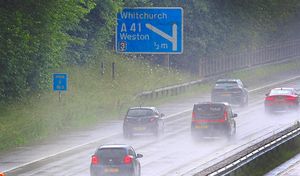
But in making the case for its suitability to host a 140 acre gigafactory, the council, and the Bradford Estates seem to be banking on its proximity to the motorway network, and the potential to connect to supply chain businesses from Shrewsbury and Telford through to the West Midlands. Another major issue is space. The size of the plot needed for a gigafactory is around 140 acres, something which has proved a stumbling block for authorities looking for suitable plots.
The Bradford Estates have space for the project, although the space is located on protected land and the suggestion that it could be used for a 3,000-worker factory is likely to be greeted with opposition.
The need for the factories comes ahead of what is anticipated to be the biggest change to the car industry in decades, as firms vastly increase the production of electric vehicles in the shift away from the internal combustion engine that has dominated the past hundred years.
It is understood that the government is looking at the potential for more than one factory to be needed – with predictions that each project is worth around £1.8bn in investment. In May two British startups, AMTE Power and Britishvolt, announced their plans to build the country’s first gigafactory, with St Athan in Wales and Coventry shortlisted. The Welsh town is already home to an Aston Martin electric car plant, which opened fully in December 2019.
The prospect of bringing a gigafactory to the region has been a centrepiece of Andy Street’s term as West Midlands Mayor, with the Conservative leaving people in no doubt about his ambitions for the project when he said: “The West Midlands needs a world-class ‘gigafactory’ capable of producing the batteries required to power our next generation vehicles.”
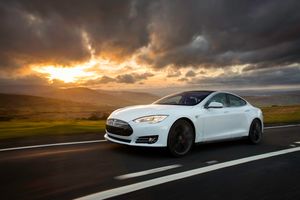
While the site would be based in Shropshire, its location is just miles from the metro-mayor’s domain, and likely to provide significant economic opportunities for business across the region.
Only this week the prospect was raised during Prime Minister Boris Johnson’s speech in Dudley, where he appeared to offer significant encouragement to Mr Street’s ambitions, stating his government “would back that vision”.
Mr Street added: “It is no secret that I am determined to bring a gigafactory to the West Midlands, and I was very encouraged by the Prime Minister’s words in Dudley last week when he said he would back our region’s vision to become a global centre of battery technology.”
Earlier this year the Department for International Trade confirmed the search for sites, with a spokesman saying: “The government is working with industry to help make the UK the location of choice to develop world-class electric vehicle technologies. DIT is working closely with partners to scope out sites for new investment into electric vehicle research, development and manufacturing.”
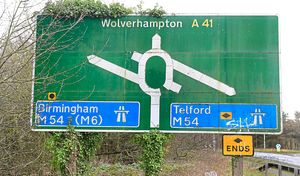
The term ‘gigafactory’ is one coined by Elon Musk, CEO of Tesla. It is his firm that has built the most notable gigafactory so far in Nevada in the United States. The firm says had an annual capacity of 20 GWh in 2018, making it the highest-volume battery plant in the world. A gigafactory is also being created in Sweden by Northvolt, with the 16GWh factory expected to cost around £1bn to build.
In the UK the only major electric battery plant is run by Nissan, with a capacity of 2GWh capacity – significantly less than will be required to meet expected demand.
It is predicted that by 2023 the demand for electric vehicles will necessitate a UK factory with a 15GWh capacity.
As a result it is understood that the government wants sites to be available for the projects from next year.
Viscount Alexander Newport, the managing director of the Bradford Estates, said he believed the project would have significant benefits for the region.
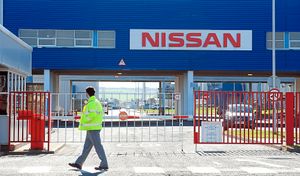
He said: “I can confirm we have been working with Shropshire Council on its submission to the Department for International Trade outlining our J3 development site as the potential location for a gigafactory.
“We were very pleased to be asked to help and believe that this type of project would be a huge shot in the arm for Shropshire and the wider local economy at a time when both county and country need to be focused on the post-Covid recovery.”
The momentum is clearly behind electric, not least because the government wants to ban the sale of new petrol and diesel cars by 2035.
It is an ambitious plan and one that needs a revolution in infrastructure –from gigafactories right down to the network of roadside chargers that must be created if the transition is to work.
There are significantly more electric cars on the road, with Tesla enjoying good sales. And the Formula E racing series shows the potential of electric. It is now up to the West Midlands to jump on board.


